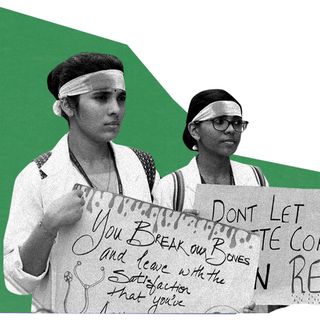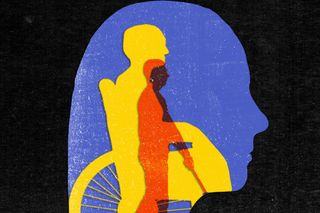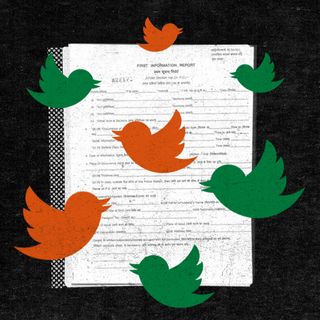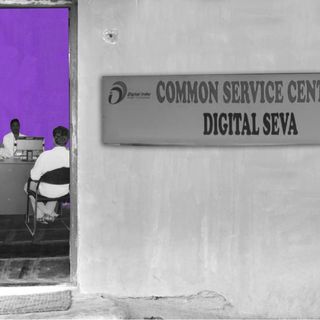
Why Disability Activists Argue Against Labels Like ‘Differently Abled’
Euphemisms like “special” or “different” reinforce negative stereotypes about disability — suggesting it is something to be ashamed of.

People with disabilities have long been opposing “positive” terminologies for their disabled experiences — through movements like #SayTheWord and #ThisIsWhatDisabilityLooksLike, among others. However, before the popularity of social media, people were often told to use terms like “specially abled” or “differently abled” to describe people with disabilities. But as the disabled community began taking control of their own narrative, the euphemistic references began to be criticized — here’s why.
Terms like “special” or “different” are often created by non-disabled, but “well-meaning” people — that doesn’t mean they’re not able-ist. “People use these terms because they see them as accentuating the strengths of people with disabilities. But despite the good intention, these terms are euphemisms that deny recognition of disability as a valued aspect of diversity and identity,” said Carrie Pilarski, a clinical psychologist from the U.S.
The act of resorting to positive language — even if it means denying one their reality — reinforces negative stereotypes about disability. It suggests that being disabled is undesirable or something to be ashamed of — so much so that one shouldn’t even use the term “disabled.” Not only does it deny individuals recognition for their day-to-day struggles, but is also “patronizing” and “condescending” since it assumes how people with disabilities would choose to identify themselves, without taking their agency into account.
And no matter how well-intentioned the positive euphemisms may be, at the end of the day, not only do they fail to contribute to inclusivity, but also, by perceiving that disabled individuals have “special abilities,” the terminology can, in fact, hinder or reduce the support available to them. “Euphemisms protect society from accepting hard realities and give it an excuse to not act on them,” Nipun Malhotra, a disability rights activist from Mumbai, wrote in Scroll.
Related on The Swaddle:
Why We Expect People With Invisible Disabilities To Learn To Act ‘Normal’
The term “specially abled” also suggests that a disabled person is making up for their disabilities by exhibiting special skills or abilities — tying their worth to their ability to compensate. “We deserve respect whether we are able to compensate for our disabilities with ‘different abilities’ or not,” Revival Disability Mag wrote last month. “Why should we have to ‘compensate’ for our disabilities at all? Does the able-bodied world have to compensate for characteristics or traits they may be lacking? Are we only of value if we carry out this compensation properly?” they added.
The publication’s argument was a response to an Instagram post from last month by an Indian digital media house that told its two-million follower base that “disabled” was an “offensive” word and the term they should be using instead was “differently abled.” After strong criticism from the disabled community, the media house took down its post.
But this isn’t the first time the media has tried to control the narrative around disability in a manner that promotes harmful stereotypes. In fact, in the past too, it has been criticized for trying to put a positive spin on disability by using terms like “courageous” and “inspirational” to describe persons with disabilities. That perpetuates harmful, and even impossible, standards for people with disabilities — to create “inspiration porn” for largely non-disabled audiences by objectifying the struggles of people with disabilities.
Related on The Swaddle:
Know Your Rights: Disability Laws in India
Further, as Malhotra wrote, positive terminology can result in the achievements of people with disabilities being discounted — as a result of the idea that they have super-human skills to make up for the abilities they are believed to lack. “I have also always hated the term as discounting my efforts: when I excelled in school, others often argued that ‘since god had taken way one thing, he had compensated me with another.’ [Differently abled] is a term created by the so-called able-bodied to make themselves feel good,” he wrote, arguing, “…isn’t everyone differently abled? I might be a good writer, others might be good singers, traders, or chefs.”
Moreover, when the assistance that a disabled individual may need at their educational institute or workplace is called “special needs,” there is an implication that their needs are somehow “extra” or that they’re seeking a privilege not afforded to the able-bodied population. The notion of “extra” also fosters the harmful perception that catering to the needs of people with disabilities is an “option” or even a “burden” — because, after all, it is “special.”
And as the disabled community has pointed out time and again, their needs are hardly “special”; it’s simply to facilitate things everyone else takes for granted — like eating, sleeping, or engaging in society. “We all have the same basic needs. That doesn’t make us special — it makes us human,” wrote Robyn Powell, a professor of law in the U.S., who also describes herself as “a proud disabled woman.”
While positive euphemisms that gloss over the struggles of disabled folks are harmful, to state that every individual who lives with a disability must reject all positive euphemisms — irrespective of how they would personally choose to identify — could also be patronizing and belittling. As Revival Disability Mag wrote, “in this journey of living with disabilities… each disabled person gets to make that choice for themselves.”
Devrupa Rakshit is an Associate Editor at The Swaddle. She is a lawyer by education, a poet by accident, a painter by shaukh, and autistic by birth. You can find her on Instagram @devruparakshit.
Related


FIR Filed Against Twitter for Not Removing Tweets About a Muslim Man’s Assault
